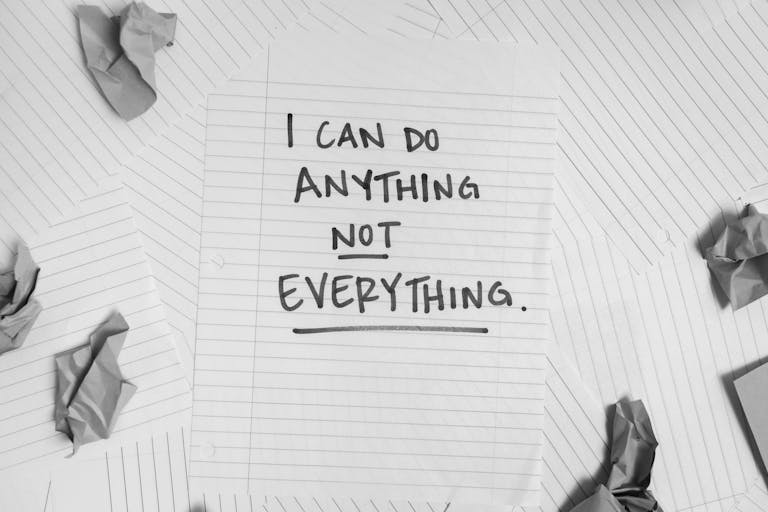Redefining Anger as An Appropriate Emotion (Podcast Episode)
Anger: A Powerful Signal That Demands Attention
Anger is one of our most misunderstood emotions. It can be destructive when ignored or misdirected, yet profoundly beneficial when acknowledged and managed effectively. Rather than suppressing or unleashing anger haphazardly, cultivating healthy patterns of response allows us to harness its energy for positive change.
1. Why Anger Matters
- Warning Signal
Anger alerts us that something is wrong, either internally (unmet needs, past hurts) or externally (injustice, boundary violations). It’s nature’s way of saying, “Pay attention.” - Motivational Fuel
When channeled constructively, anger propels us into action: standing up for ourselves, correcting unfair situations, or driving creative problem-solving.
2. The Risks of Ignoring Anger
Ignoring or bottling up anger can lead to:
- Uncontrolled Outbursts: Stored anger often “leaks out” as verbal attacks or even physical aggression, damaging relationships and trust.
- Poor Decision-Making: Elevated stress hormones (like cortisol and adrenaline) cloud judgment (think road rage or regrettable confrontations).
- Chronic Stress: Unprocessed anger contributes to health issues (hypertension, weakened immunity) and persistent irritability.
3. How Anger Manifests in the Body
- Nervous System Activation: Heart rate spikes, muscles tense, breathing becomes rapid.
- Hormonal Surge: Cortisol and adrenaline flood the body, heightening alertness.
- Energy Build-Up: This physiological “stirring” is an invitation to either act or intentionally calm down.
Understanding these signals gives you choice: you don’t have to react immediately. You can decide how best to release or redirect that energy.
4. A Five-Step Process for Healthy Anger Management
- Acknowledge Your Anger
- Name it: “I’m feeling angry right now.”
- Validation helps you own the emotion rather than deny it.
- Safely Express the Feeling
- Journal your thoughts.
- Use physical outlets: hit a pillow, go for a brisk walk, or do a quick workout.
- Speak with someone you trust (vent without attacking).
- Explore the Underlying Causes
- Ask, “What exactly triggered me?”
- Look for patterns: Are there recurring themes, like feeling disrespected, overwhelmed, powerless?
- Decide on Action
- If change is possible: Plan a constructive conversation or a concrete fix.
- If change isn’t possible: Practice acceptance. Let the anger dissolve naturally by engaging in soothing activities (deep breathing, spending time with loved ones, going for a walk).
- Manage Future Triggers
- Identify early warning signs of irritation (the “pre-anger” stage).
- Develop strategies – brief breathing breaks, setting clear boundaries, taking “time-outs” to prevent escalation.
5. Breath-Work: A Fast Track to Calm
According to Dr. John Schinnerer, author of Anger: Taming the Beast Within, deep diaphragmatic breathing can:
- Lower heart rate (from ~100 to ~80 bpm)
- Reduce cortisol levels
- Calm the nervous system
Practice: When you feel anger rising, pause for 10 minutes of slow, deep inhales and exhales. Over time, this trains your body to settle more quickly in moments of stress.
6. When Anger Is a “Cover Emotion”
Sometimes anger masks deeper feelings like fear, sadness, or shame. If you suspect this:
- Use a safe release (punch a pillow, write in a journal).
- Once physiological tension drops, check in: “What am I really feeling beneath this anger?”
Working through these layers prevents follow-on outbursts and costly misunderstandings.
7. The Benefits of Embracing Anger
- Empowerment: You reclaim control instead of letting anger control you.
- Connection: Sharing anger around shared unfairness builds solidarity and trust.
- Growth: Each angry episode, when processed, teaches you about your boundaries, values, and needs.
8. Nipping Anger in the Bud: Dealing with Irritation
Irritation often precedes anger. To prevent escalation:
- Acknowledge the Snag: “I feel irritated because…”
- Breathe and Pause: Take several slow breaths.
- Address the Cause: Speak up early or adjust the situation (e.g., ask for help, rearrange your schedule).
- Self-Care Break: If needed, step away briefly to reset.
9. Summary
- Anger is a natural, purposeful emotion (a built-in alert system).
- Ignoring anger risks explosion or chronic health consequences.
- Healthy anger work involves acknowledgment, safe expression, exploration of root causes, constructive action or acceptance, and trigger management.
- Techniques like breath-work and early irritation handling keep anger from overwhelming you.
By welcoming anger as a guide rather than an adversary, you transform its power into positive change – both within yourself and in the world around you.
Jason Ayers helps high-achievers make big decisions and bold moves in 90 days or less…
Jason drives profound transformation through his five-step Visionary Alignment Process, helping leaders reveal hidden patterns, clarify true desires, and align Mind, Mission, and Systems for lasting impact.
The result? Clients who finally begin to feel as successful on the inside as they appear on the outside. His clients don’t just optimize – they evolve.
Ready to step into the best version of yourself?
Warning: side-effects may include improved relationships, exceeding your goals, feeling more fulfilled and falling in love with your life.



